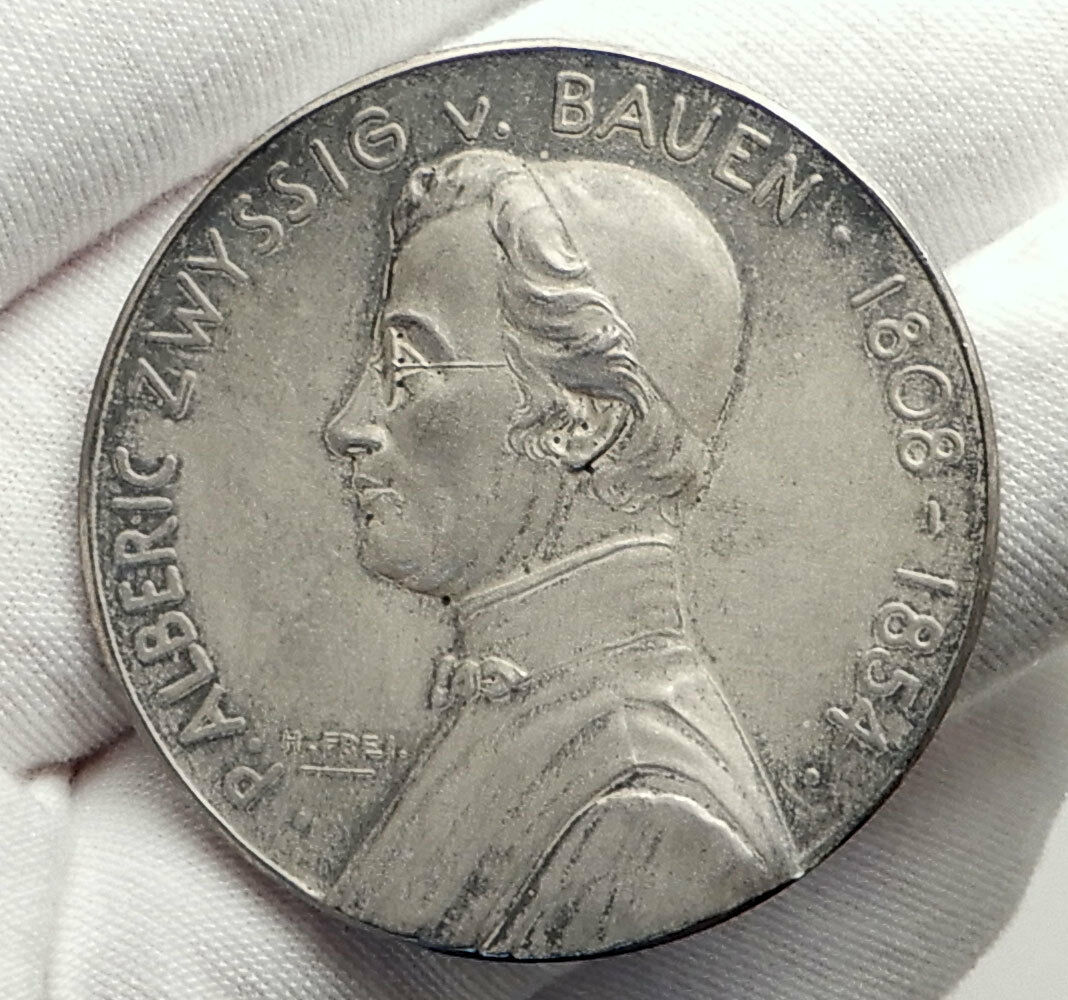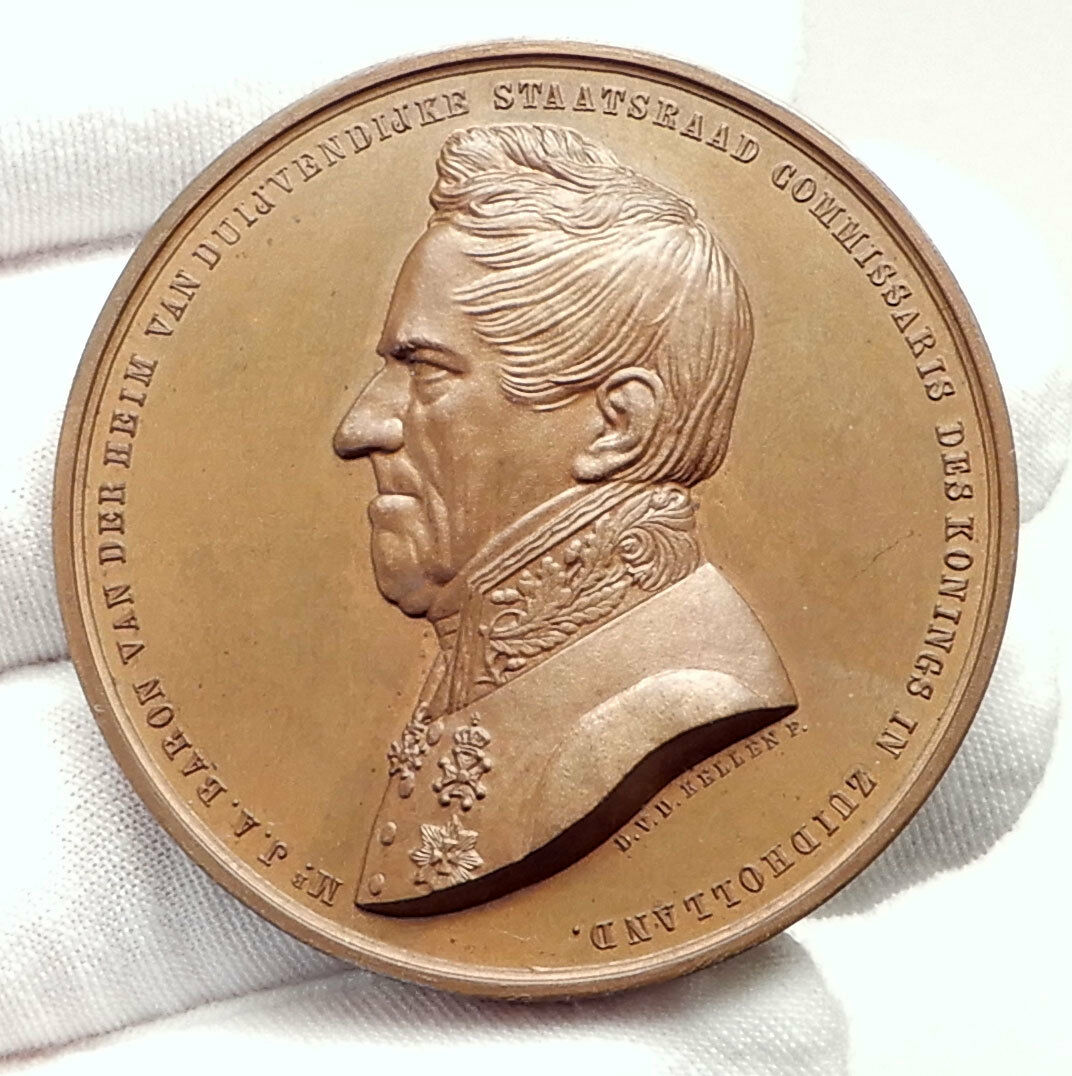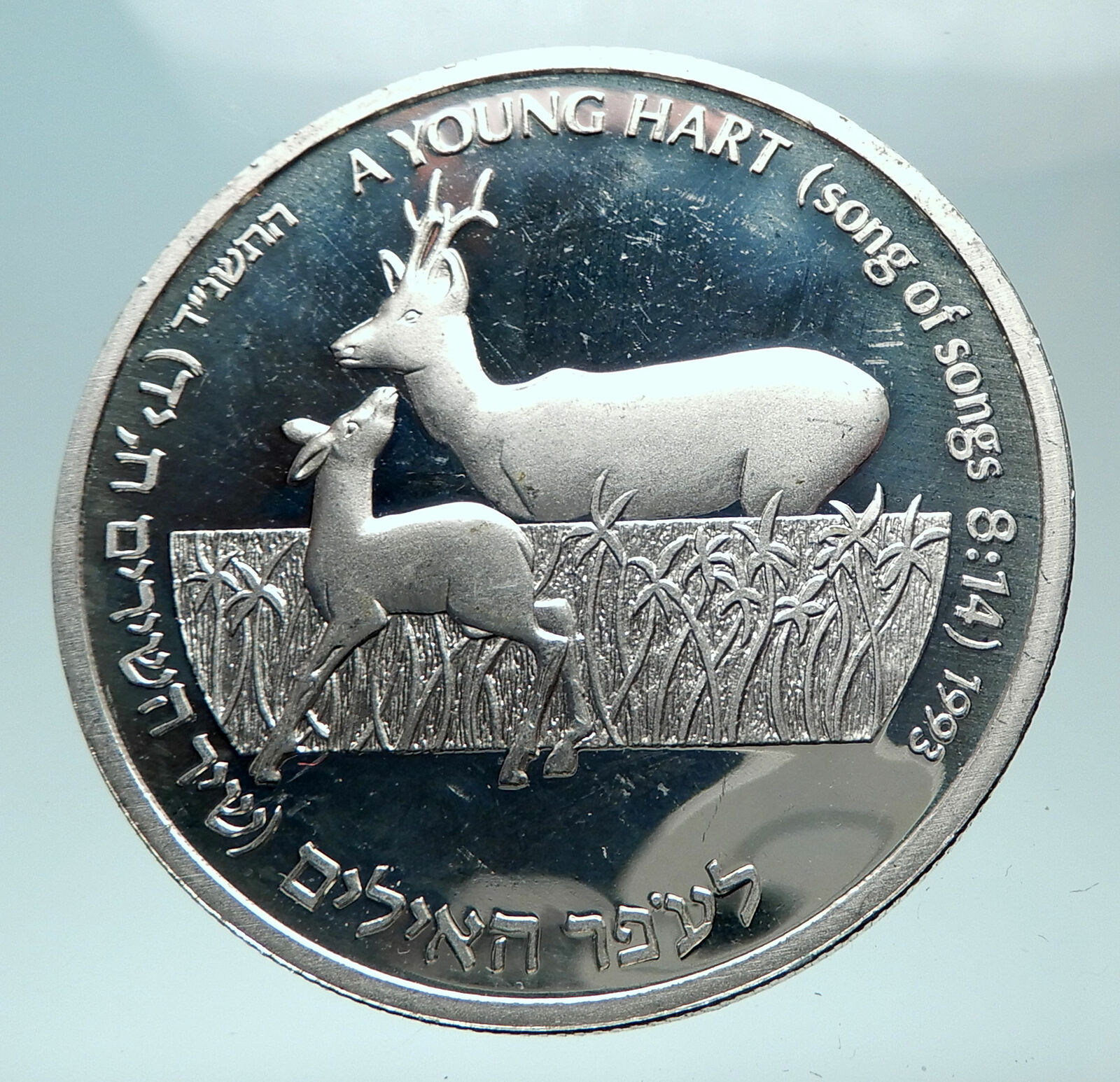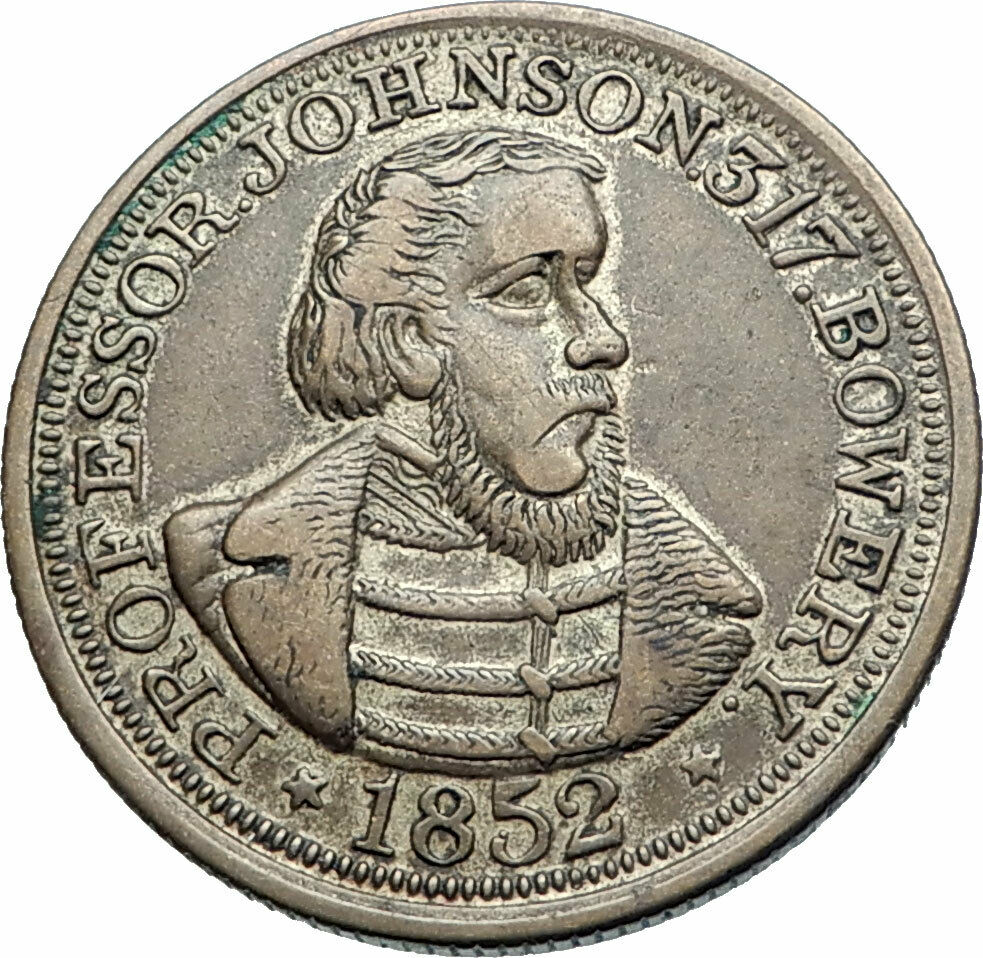|
Great Britain (United Kingdom)
Horticultural Society Medal
1940 Bronze Medal 43mm (37.87 grams)
THOMAS ANDREW KNIGHT PRESIDENT MDCCCXXXVI, Andrew facing left.
THE ROYAL HORTICULTURAL SOCIETY AWARDED BY BRENWATER & DIST. GARDEN SOCIETY TO MR. W. BUTCHER 1940, Oak leaf below inscription within and around.
You are bidding on the exact item pictured, provided with a Certificate of Authenticity and Lifetime Guarantee of Authenticity.
 The Royal Horticultural Society (RHS), founded in 1804 as the Horticultural Society of London, is the UK’s leading gardening charity. The Royal Horticultural Society (RHS), founded in 1804 as the Horticultural Society of London, is the UK’s leading gardening charity.
The RHS promotes horticulture through its five gardens at Wisley (Surrey), Hyde Hall (Essex), Harlow Carr (Yorkshire), Rosemoor (Devon) and Bridgewater (Greater Manchester); flower shows including the Chelsea Flower Show, Hampton Court Palace Flower Show, Tatton Park Flower Show and Cardiff Flower Show; community gardening schemes; Britain in Bloom and a vast educational programme. It also supports training for professional and amateur gardeners. As of 2022 the president was Keith Weed and the director general was Sue Biggs CBE.
The creation of a British horticultural society was suggested by John Wedgwood (son of Josiah Wedgwood) in 1800. His aims were fairly modest: he wanted to hold regular meetings, allowing the society’s members the opportunity to present papers on their horticultural activities and discoveries, to encourage discussion of them, and to publish the results. The society would also award prizes for gardening achievements.
Wedgwood discussed the idea with his friends, but it was four years before the first meeting, of seven men, took place, on 7 March 1804 at Hatchards bookshop in Piccadilly, London. Wedgwood was chairman; also present were William Townsend Aiton (successor to his father, William Aiton, as Superintendent of Kew Gardens), Sir Joseph Banks (President of the Royal Society), James Dickson (a nurseryman), William Forsyth (Superintendent of the gardens of St. James’s Palace and Kensington Palace), Charles Francis Greville (a Lord of the Admiralty) and Richard Anthony Salisbury, who became the Secretary of the new society.
Banks proposed his friend Thomas Andrew Knight for membership. The proposal was accepted, despite Knight’s ongoing feud with Forsyth over a plaster for healing tree wounds which Forsyth was developing. Knight was president of the society from 1811 to 1838, and developed the society’s aims and objectives to include a programme of practical research into fruit-breeding.
|





 The Royal Horticultural Society (RHS), founded in 1804 as the Horticultural Society of London, is the UK’s leading gardening charity.
The Royal Horticultural Society (RHS), founded in 1804 as the Horticultural Society of London, is the UK’s leading gardening charity.




